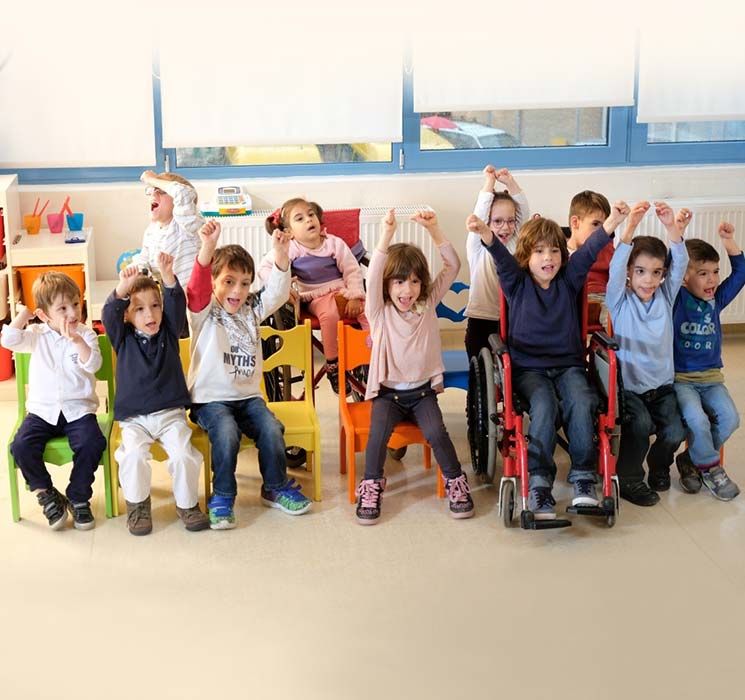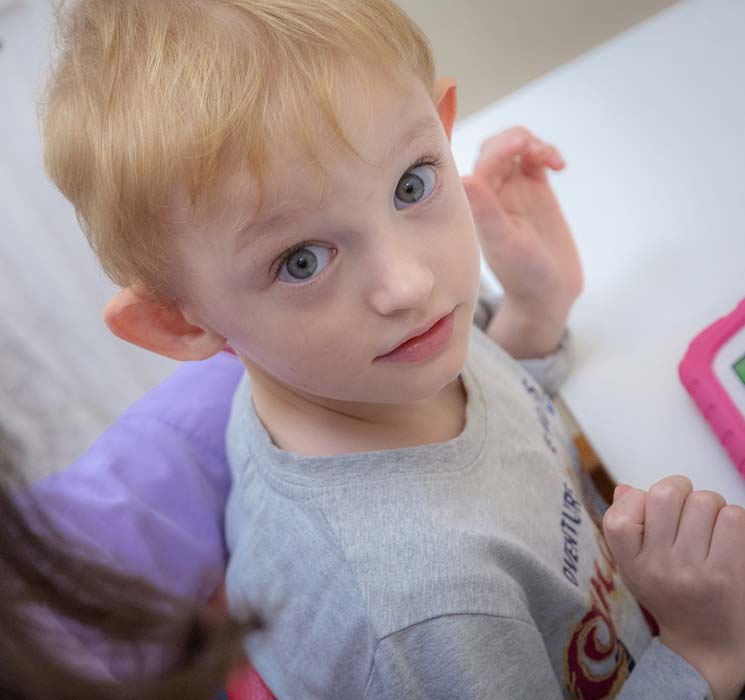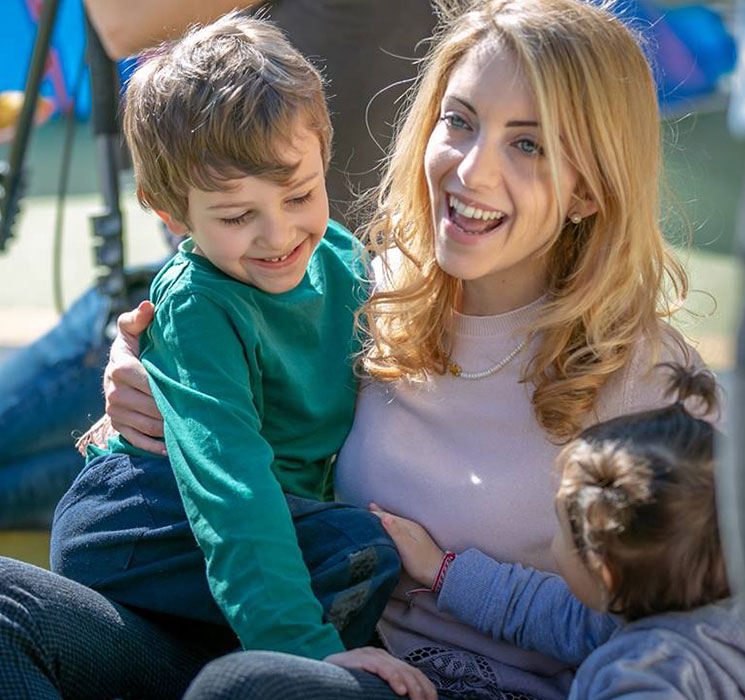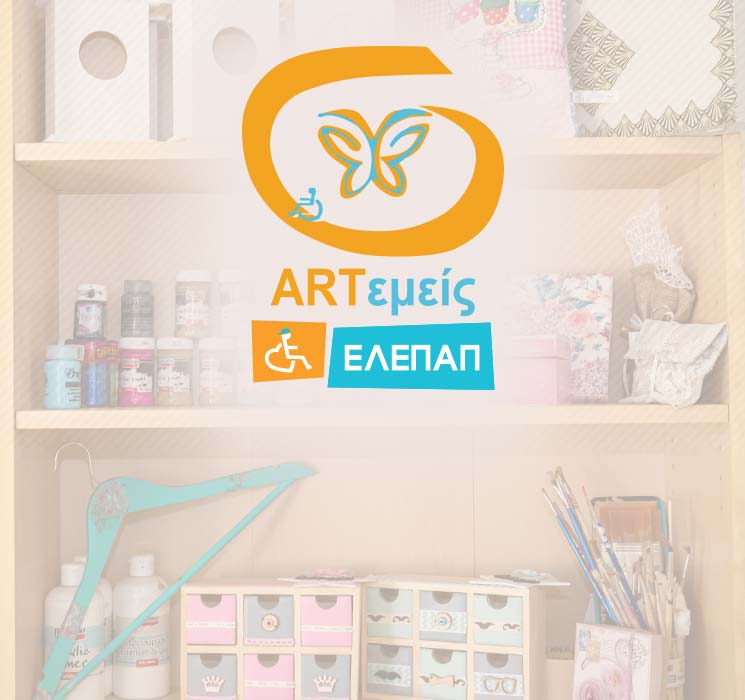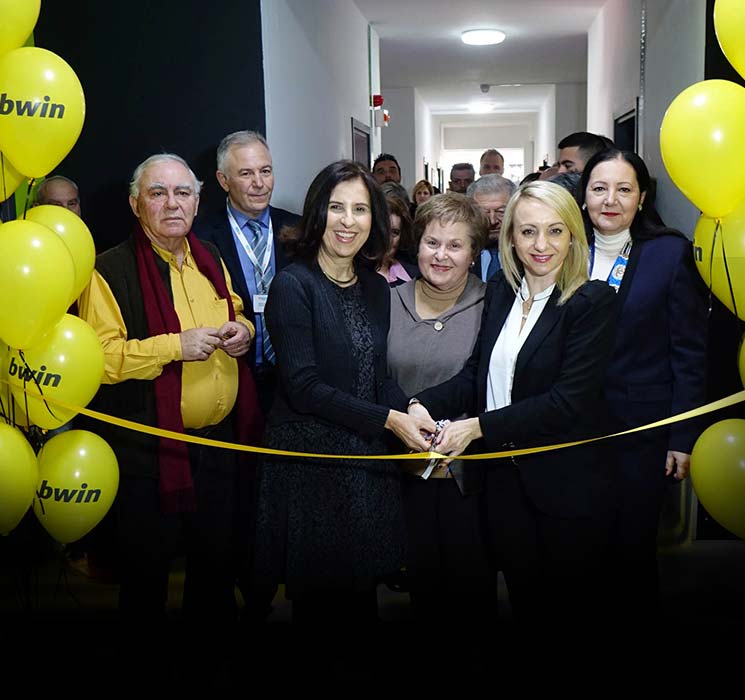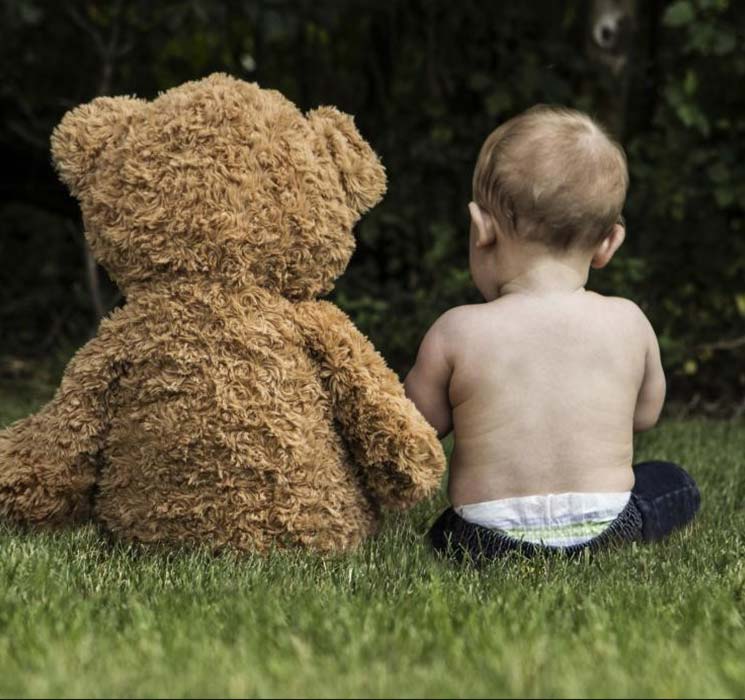Early intervention
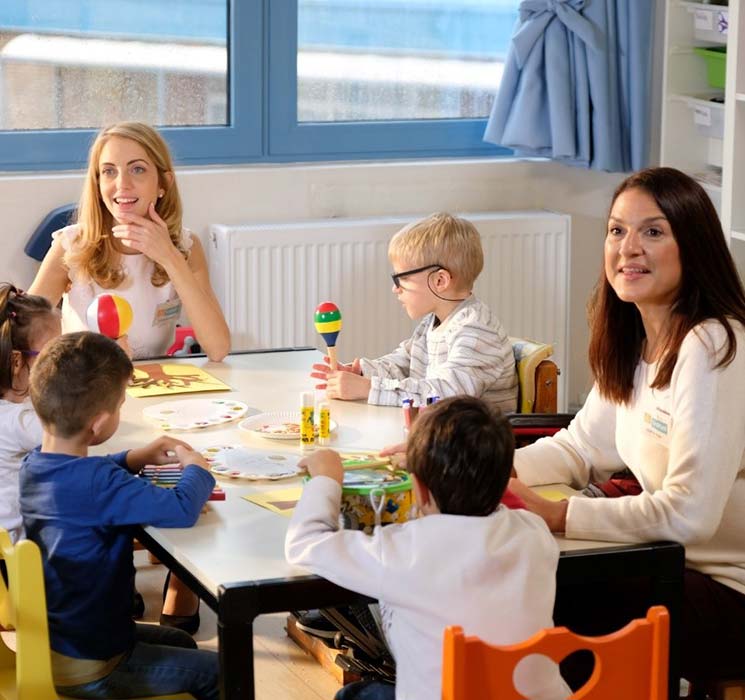
ELEPAP’s Early Education and Therapy Intervention Program- Special Preschool Education Unit is open to children from 18 months to 7 years of age with motor, sensory and developmental disorders:
- Cerebral palsy
- Acquired brain injury
- Psychomotor retardation
- Neurodevelopmental disorders with accompanying motor impairment
Early detection of the difficulties and early intervention have been shown to reduce learning difficulties and behavioral problems, improve socialization and guarantee a better quality of life for children with motor and developmental impairment. Education helps the children become more functional and integrate better in school and society.
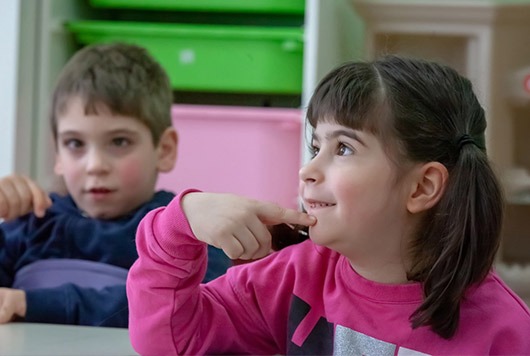
A great advantage of the Early and Therapeutic Intervention is that the children attend their Education as well as all their Therapeutic Programs under the same roof. The child undergoes therapy during school hours and avoids unnecessary travel.
The Early Intervention has different classes/levels where the children are assigned depending on their cognitive ability and their difficulties. The Early and Therapeutic Intervention operates the:
Mixed Day and Day Care Center - “Thea Lena” Nursery
Preschool- Kindergarten
The main goal of the pedagogical intervention is to design individualized education programs, adjusted to each child’s special abilities, needs and interests. Their goal is:
- All-around development: cognitive, conceptual, psychomotor and psycho-emotional
- Promotion of school-readiness skills
- Social integration
A great number of our children (approximately 60%) manage to attend General Education schools.
At the same time the children also attend group educational activities, cultural events and excursions and take part in national and religious celebrations. ELEPAP has its own, in-house playground, the Minos Kyriakou Model Playground- We all Play Together! We have created a space of equal opportunities offering a variety of playing experiences where a child on a wheelchair can enjoy the swings and the see-saw just like an ambulatory child can.
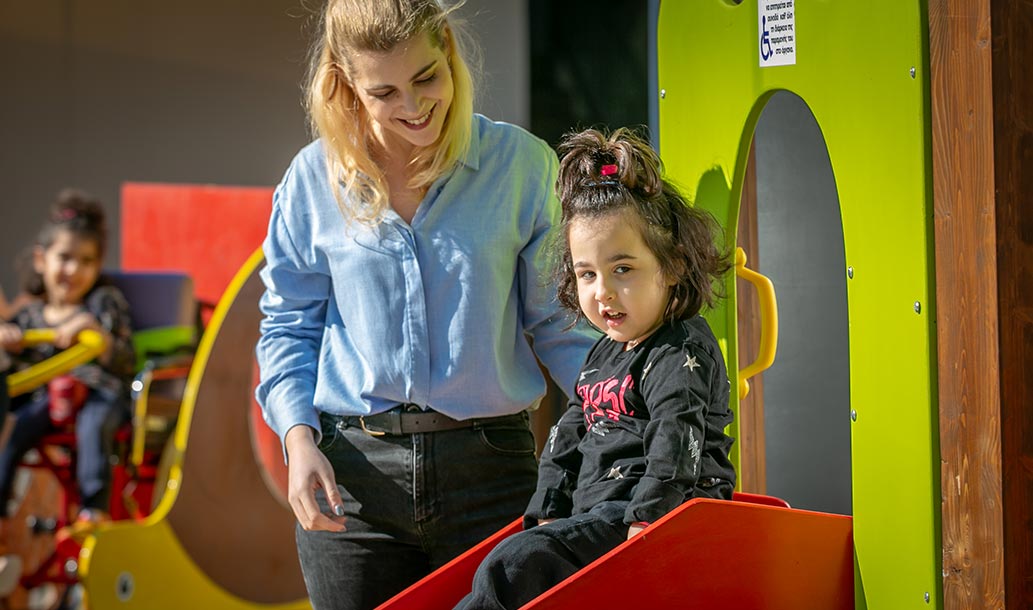
Special emphasis is placed on supporting families with individual and group counseling sessions organized by the psychology and social services. The parents are informed of their children’s progress by the teachers on a monthly basis.
The Day Care department is part of the Early Intervention and combines daily care with a therapeutic program appropriate for infants with multiple disabilities which are the result of neurodevelopmental disorders.
The “DCC” provides care (hygiene, meals, safety, medical surveillance) and activities which activate the children’s development potential during their stay in a pleasant and welcoming environment of a specially designed area. The children can also get the rest that they need. The “DCC” provides respite care during the day for children with disabilities taking some of the pressure off parents during the day.
The methods used to achieve the pedagogical goals are:
- Integrated approach
- Individualized teaching
- Experiential learning
- Cooperative learning
- Multisensory approach
- Interdisciplinary class
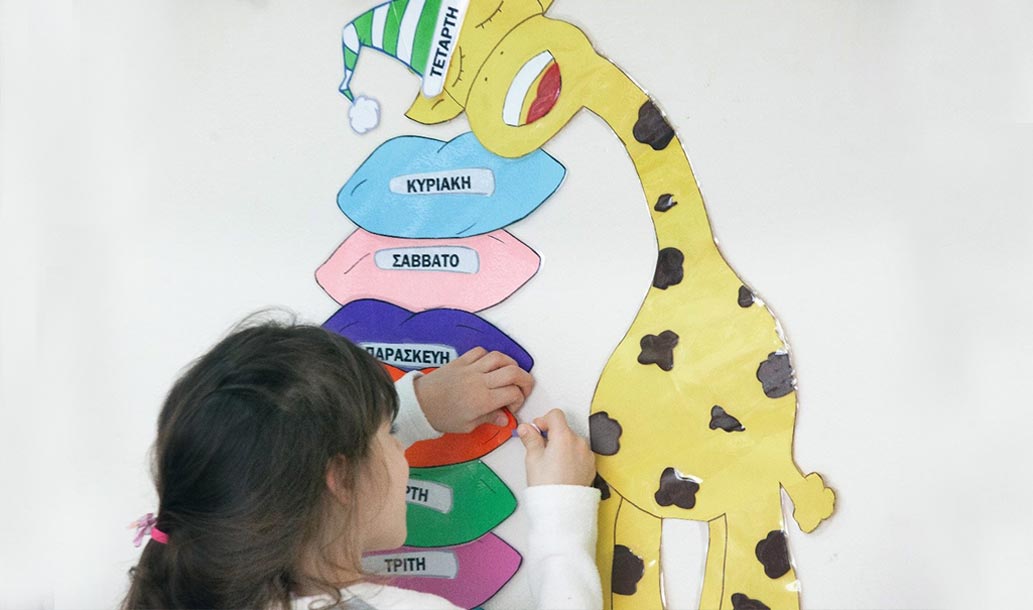
- Integrated and intertherapeutic approach
- Implementation of the Special Pre-school Education curricula
- Interactive socialization programs for the children of ELEPAP through awareness raising among schoolchildren
- Continuous Training of the staff
- Interdisciplinary team
- Cooperation with State organizations/State Assessment Centers (KEDDY)
- Visits to schools
- Counselling to parents
- Monthly information meetings with parents
Individualized Education Program
Goals
- Develop oral skills
- Develop psychomotor skills
- Pre-reading/reading skills
- Pre-math/Math skills
- Perceptual skills
- Kinaesthetic learning skills
Group Education Program
Goals
- Promote team spirit
- Promote psychosocial and emotional skills
- Role playing
Socialization programs
- Organization of educational and recreational excursions
- Participation in school festivals
- Visits to other pre-school facilities and contacts with their peers using interactive programs.
Interactive programs for the socialization of ELEPAP children through awareness-raising in school pupils
This is an effective method for socializing ELEPAP children and schools: ELEPAP children become familiar with regular school settings, whilst their peers get to know children with disabilities and everybody learns:
- to get along together
- to compete with each other
- to be entertained in a single shared space, such as the pool and sports grounds and theatre stage, accepting each other’s differences and those of everybody around them.

